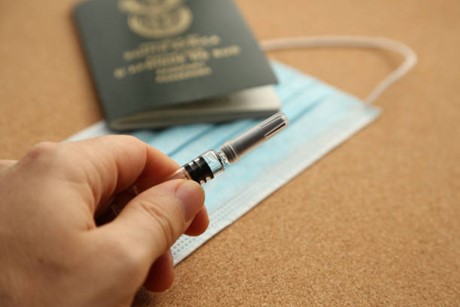Travel Vaccines for Africa and South Africa [Guide 2025]


Looking for a full guide about travel vaccines for Africa and South Africa ? Please find our full and comprehensive guide below
Are you planning to go for an Africa Safari? You will definitely experience a surge in emotions right from excitement that comes with experiencing a new adventure to the thrill of fulfilling your dream. However, you will definitely be concerned about your health status. This should not be a major concern to you since with sound medical advice from your travel healthcare professionals or doctor together with up to date vaccinations, there are low chances you will experience a serious health issue.
Africa is the second largest continent. The health risks in each country vary widely depending on the climate, region, season, proximity to the equator and several other factors. Overall, Africa is considered to have the largest risk worldwide for vaccine and tropical preventable disease.
Make sure that you have a travel Insurance before leaving : See our full guide below
In this guide, we will be taking you through important vaccines for Africa you should get before you embark on your safari.

PLAN OF THE ARTICLE :
- Important travel vaccines for Africa
- Vaccinations for South Africa
- Others important tips for travellers to Africa

Vaccines to Travel to Africa and South Africa
Wondering about malaria ? Check our full guide HERE
Important Travel Vaccines for Africa
The Centers for Disease Control and Prevention (CDC) recommends a number of vaccines for any person planning to travel to Africa.
Below are the necessary vaccinations any person intending to travel to Africa needs to have.

Hepatitis A Vaccine
According to recent statistics research by world health organization, Africa has the highest Hepatitis A incidence in the world. Hepatitis A is easily transmitted through contact with contaminated water or food. The Hepatitis A vaccine is effective and offers lifetime immunity.

Hepatitis B Vaccine
The Hepatitis B incidence is also largest in the African content. It is mainly transmitted through getting in contact with bodily fluids and blood products. Most of the people who are at high risk of contracting Hepatitis B include adventure travelers, refugee workers among others.

COVID 19 Vaccine
Despite COVID 19 restrictions easing across Africa with no need of providing your vaccination proof or a negative PCR test before your departure, it is still important that you get tested for present flu like symptoms. You can do it either in the lead up to travel or on arrival in your destination country. In case you test positive, it will be advisable that you take further tests to confirm if you have COVID 19.

Typhoid Vaccine
Typhoid Fever is a bacterial infection that causes diarrhea, headache and fever. It is very common in Africa and can be deadly if not managed early. Typhoid is normally transmitted through using a contaminated water or food. You can prevent it by having a Typhoid vaccination together with exercising precaution on water and food you consume.

Yellow Fever Vaccine
Yellow fever is the only vaccination that is mandatory for anyone entering Africa. Yellow fever is a viral disease mostly transmitted by mosquitos. It causes muscle pain, fever, headache and vomiting. It not well managed; yellow fever can be very deadly. You can prevent yellow fever by undergoing yellow fever vaccination.
It is advisable that vaccination is conducted at least 10 days before traveling to a yellow fever zone. You will receive your proof of yellow fever vaccination after getting your shot which you will have to show on arrival in some countries.

Malaria Prevention
The risk of malaria prophylaxis is always high where and when mosquitos and prolific. The risk is much higher during the hot and humid season in the tropical regions. Despite being a very common disease in Africa, it is easily preventable and treatable. Ensure you visit your health care provider for advice on when you should take antimalarial medication.
Check our full guide about Malaria HERE

MMR Vaccine
Measles, Mumps and Rubella are viral infections that can easily be prevented by having the MMR Vaccine. Measles, mumps and rubella diseases are widespread in most parts of the world. These diseases are mainly transmitted through breathing in infected person droplets released from someone with the virus. The two MMR vaccination types are MMR VAXPRO and Priorix.

Polio Vaccine
Despite Polio also referred to as poliomyelitis being eliminated from most parts of the world still occurs in some countries in Africa. It is therefore advisable for any unvaccinated travelers to Africa to receive a one-time booster dose of the inactivated polio vaccine (IPV) before they travel. There are African countries that require visitors to show proof of polio vaccination before they are allowed into the country.
Vaccinations for South Africa

South Africa is an important hub for tourism, business and culture in the African continent. Most of the people with visa into this African country can stay to at least 90 days. However, there are a few precautions which you need to take to ensure you are safe during your stay in South Africa. You should always prioritize sun safety and mosquito bite prevention and lots of care should always be taken whenever you are drinking and eating in areas with poor sanitation. It is important to get all the necessary vaccination just to ensure you are safe.
Before you embark on your journey to South Africa, it is important that you make an appointment with your medical doctor or travel health clinics discuss all the vaccination requirements. This should always be done six to eight weeks before you fly to South Africa.

Routine Immunizations for South Africa
Before you start planning for your travel vaccinations for South Africa, it is important that you make sure you have received all the routine vaccinations that are administered in your home country. In case you are not sure if you have received all your vaccinations or not, do not hesitate to speak to your medical practitioner.

What Are the Vaccinations Required For South Africa ?
When you are up to date with all the routine jabs for South Africa, you can now start to make a travel vaccination plan. Depending on when you will be traveling, the current vaccine recommendations your healthcare practitioner may advice you to receive the diphtheria, tetanus and typhoid vaccines.
Depending on when you are planning to travel and the current vaccine recommendations your healthcare practitioner may advise you to receive the diphtheria, tetanus and typhoid vaccines. You might also consider hepatitis A, cholera, hepatitis B, tuberculosis and rabies vaccination, depending upon where you will be travelling to and what kinds of activities you will be taking part in.

Where Can I Get My Vaccine Injections For South Africa?
There are countries such as the United States where you will be able to receive some of the inoculations for South Africa for free on the NHS. In most cases, the following vaccines will be for free:
- Diphtheria, polio , tetanus booster
- Hepatitis A vaccine
- Typhoid vaccine
- Hepatitis A & typhoid vaccine
- Cholera vaccine (in some cases)
In most cases, rabies, hepatitis B and tuberculosis vaccines are additional vaccines not available for free on the NHS. You can also arrange to receive these injections through a private service. The cost for these private vaccines varies.

When Should One Get immunizations for Africa
When you are in need of vaccinations before you fly out to your destination, it is advisable that you seek travel health assessment at least eight weeks in advance. There are vaccinations that will require more than one or two doses and will have to be spread out to over a period of time.
Moreover, several vaccinations require administration at least four to six weeks before traveling for them to be effective. It is therefore important that you factor in this before your travel date. Not all vaccines are available in the nearby pharmacies. When you place your order, it can take several days for the vaccine to be available.
Other Important Tips for Travelers to Africa

Apart from getting the right vaccines, there are other important tips one needs to consider before or during their vacation in Africa.
- ✔️Only drink bottled fresh water or boiled water
- ✔️Avoid ice in drinks
- ✔️Never eat raw vegetables or fruits unless you can peel them yourself
- ✔️Avoid unpasteurized dairy products
- ✔️Avoid getting into contact with animals to stay away from rabies. Be very cautious around bats, monkeys and dogs.
- ✔️Get a high quality insect repellent that contains DEET.
- ✔️Always put on long sleeves and pants to help protect your against mosquito bites.
- ✔️If possible only wear light color clothes as they are less visible to mosquitoes and insects.
- ✔️Ensure you always carry a medical kit whenever you will be visiting rural areas or high risk areas.
- ✔️Carry proof of vaccination records in case you require medical attention and medical history.
- ✔️ Ensure you have a comprehensive travel insurance that comprises of evacuation in case of a medical emergency.

Bottom Line on Vaccine shots for Africa
Visiting Africa is a thrilling adventure one will want to remember for many years to come for all the right reasons. Even when you are in great health, it is important that you always speak to your health practitioner before you embark on your journey to Africa. This will help ensure you get health advice that will enable you to stay in Africa well. Being prepared and well informed before your travel means you will have a peace of mind and freedom to immerse yourself in your safari vacation.

WHO AM I ?
Hello !
I am Eric, a French Australian citizen based between Australia, Asia and Bali and I love to travel and experience the world. I generally like outdoor activities, wellness, great food and venues , party and real local adventures ! I am a Yoga practitioner and fitness lover
I created this blog because I love to travel and I want to share my experiences with others. I’ve been traveling since I was a child, and I’ve been to over 50 countries. I’ve seen some amazing things and met some amazing people, and I want to help others experience the same things.
I believe that travel is one of the best ways to learn about the world and about yourself. When you travel, you’re forced to step outside of your comfort zone and experience new things. You learn about different cultures, different religions, and different ways of life. You also learn about yourself, your strengths, and your weaknesses.
Travel can also be a great way to make new friends. When you’re traveling, you’re surrounded by people from all over the world, and you’re all in the same boat. You’re all there to explore and experience new things, and that can create a bond between people.
Let’s connect together !
I hope that my travel blog will inspire others to travel and to see the world. I also hope that it will help people to learn about different cultures and to become more open-minded.
